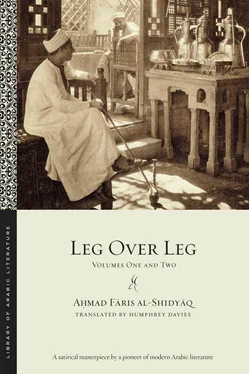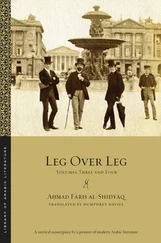No indeed! — nor cottage cheese, nor poor-quality dates,
Nor silk mixed with wool to hang on my peg, nor a cotton wad for my inkwell.
0.4.14
But on my pate I had an itch that spurred me
To practice writing, if only once,
Though he who is hired to compose a sermon for money,
Such a one is well suited to be considered a laborer of no worth.
Take of my words such as will find a market, and what you find
Counterfeit, leave for me in their wrappings.
The money changers are bound on occasion to find
Among the silver coins one that is of bad metal.
Many a gold coin will drag to you by his beard one whom you
May love, even if its face cannot be clearly read.
0.4.15
The old patina that you see thick
Upon it will not adhere to the glass of your mind.
He whose nature is refined, be he where he may,
Will believe what is gross in his beloved to be as refined as he.
Do not spurn what has gladdened you in him just because of what
Has hurt you. Nay, turn not your back on him in disgust.
The classifier is no classifier
If he doesn’t put things into classes.
Isn’t “of a certain stamp” the same in meaning as
“Of a certain type,” with the addition of the thwack of a stick? 28
0.4.16
God forbid that you should judge me incoherently
Before you have properly studied it
And say, “The author has committed blasphemy, so gather,
You people — your friend has uttered unbelief,”
Causing the masters of the churches to rise up in dread
Outrage and unsheathe their swords against it.
The bonds of affection between you and me are such
As to cut short any accusations of my being either a sinner or a saint.
Raise not your hackles in preparation for a quarrel, or a complaint,
And let there be between us no dogfight.
0.4.17
If I have come with good intentions, you should acclaim
Me. If not, at least do not calumniate me.
Do not let my father, my mother, or my
Honor be insulted, and do not get used to doing so.
My sin is suspended, dangling, from my nose.
It does not strike the noses of other mortals. 29
Many a foul-tongued loud-mouth
Has become, when the chaste have become sinners, himself chaste,
And many a man of pure soul, if he visits a man who has a wife,
Becomes, if she smiles at him, a rascal.
0.4.18
One rabid for young girls with firm breasts infects none but himself
And his medicine’s a breast abreast of him that’s well-risen.
What blame can attach to one who gives to his brethren
Something more delicious than wine, something exquisite?
He spent the nights carefully crafting its details
While they were sleeping, snoring loudly as they did so.
Did you ever see a noble man return a gift,
Humiliating the one who gave it to him with harsh words?
0.4.19
Could it not be that Fate has taken to playing the fool,
To raving and making jokes unfairly?
It derives kharif (“dotard”) from kharf al-janā (“the gathering in of the harvest”) and
From the ḥaṣaf (“mange”) that weakens the fingernails it derives ḥaṣīf (“man of clear judgment”).
Avoid making the lion frown, and be a brother
To the fox, a crafty fellow, of iron will.
He the sound of whose bow-string when plucked makes the sultan laugh
Is the one whom the people consider an expert.
My proem finishes with this line,
Which I have made as a roof to complete its construction.
Read nothing after this, even should you be
Charged with reading a single letter of any other book,
For then you’ll be on a slippery path, where you’ll go wrong foot first
And so slide across the line.
(Though I think that the scented air of my advice,
Like wind is in your ears — passing, leaving no trace, as though it were nought.)
CHAPTER 1. RAISING A STORM
30
1.1.1
Gently! Hush! Silence! Quiet! Cock an ear! Listen up! Hold your tongue! Quit talking! Hear! Hark! Hearken! — and know that I embarked upon the composition of this four-book opuscule of mine during wearing, grinding nights that had me praying to God standing and seated, until finally I found no further impediment to stop the faucet of my thoughts from emptying like rain clouds into the drainpipe of my pen and onto the surfaces of these pages; and that when I found the pen obedient to my fingertips and the inkpot to the pen, I said to myself, “There can be no harm to my following in the footsteps of that company of men who have rendered their reputations white by covering pages in black, for if they did well, then I too may be considered to have done well, and if they did badly, it may be that one more book is needed to add to their efforts, in which case my book, at least, may be described as perfect, for whatever has perfected something else must be capable itself of being perfect.” Taking this as my starting point, I never paused in the pursuit of my goal and felt no compunction in consigning to it all such words attractive and fascinating and figures admirable and scintillating as bring pleasure to the ear and to the constitution cheer ; this, despite knowing that scarce an author can please everyone.
1.1.2
I picture myself, then, as one confronted by some picky fault-finder who says to himself, or to another, “If the author had put his talent to work to compose a book that was of some use, he’d deserve to be praised for it; but it seems to me he has wasted his time for nothing by mentioning on some occasions things that should not be mentioned and on others things that yield no benefit.” My reply to the first point is “How many a pot has called the kettle black!” 31and “You’ve made a bad business worse!” 32and “Make the most of what you’re given!” 33and “So what are you going to do about it?!” 34and “Mind your own business!” and “The accepting eye to every fault is blind!” while to the second it is to point out that one who limps (a) should go easy on himself, (b) shouldn’t try to climb mountains, (c) should tend to his own limp before anyone else’s, and (d) shouldn’t call attention to his limping; 35or as though confronted by someone else who says, “Another of Khurāfah’s tales, Umm ʿAmr!” 36—to which I reply, “Many a true word has been spoken by the less than perfect!”
1.1.3
Next, I am confronted by a mighty crowd of priests, abbots, and monks, bequeathers of pious bequests, churchwardens, and sacristans, board-beaters, 37patriarchs, and hegumens, before whom goes the Great Catholicos 38with, before him, the Supreme Pontiff, 39all of them clamoring and havering, mooing and snorting, raging and roaring, shouting and shrieking, fuming and furious, threatening and fulminating, complaining and calumniating, venting, ventilating, and hyperventilating, yelling and gasping, praying and spittle-spraying, thus causing me to say, “ Hold your horses! Hold your horses! You have spent your whole lives in the craft of exegesis, so what harm would it do if you were to explain away what it is you don’t like about my book from the get-go, making arguments, as is your wont, that whatever is malformed is in fact comely and whatever seems hideously phrased is in fact elegant? This is something Abū Nuwās made incumbent on you hundreds of years ago, when he said,
Be not stingy in forgiveness if you be a pious man
For your illiberality is but contempt of religion
Читать дальше












